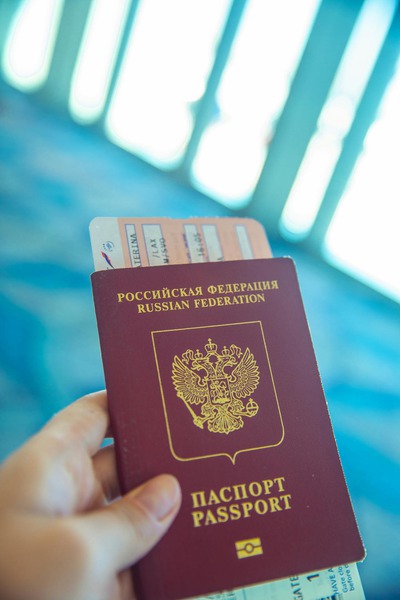Vaccinations are crucial in immigration medical exams because they help protect public health by ensuring that immigrants are not carrying infectious diseases that could spread in their new country. Immunizations are key in preventing outbreaks and maintaining herd immunity, which keeps communities safe. During the immigration process, medical exams assess individuals’ health and vaccination status to identify and address potential health risks. Ensuring that immigrants have received essential vaccinations, these exams help integrate newcomers safely and support overall public health standards.
The Connection Between Health and Immigration
Health assessments for immigrants aim to ensure the health and safety of the population in the destination country. The focus on vaccinations stems from the need to prevent the spread of infectious diseases. In a world where viruses can easily cross borders, vaccinations play a role in maintaining public health.
Why Vaccinations Matter
Vaccinations are designed to protect individuals from infections but have a societal purpose. They help create herd immunity, protecting those who cannot be vaccinated, such as newborns or those with compromised immune systems. This becomes even more crucial in the immigration process, where individuals move from one part of the world to another.
Required Vaccinations for Immigrants
Not all vaccinations are mandatory for immigration, but certain vaccines are typically required. These may include:
-
Measles, Mumps, and Rubella (MMR)
-
Polio
-
Tetanus and Diphtheria
-
Influenza
-
Hepatitis A and B
The list of required vaccinations can vary depending on the destination country and current global health concerns. Immigrants must check the specific requirements of the country they are moving to.
The Vaccination Process in Medical Exams
During the immigration medical examination, applicants must present proof of vaccination. This could be in the form of health records or medical certificates. The applicant may need vaccinations for the medical examination process if documentation needs to be included.
Documentation and Compliance
Keeping accurate vaccination records is very important. If they are not properly documented, they might cause delays when dealing with immigration procedures. To avoid such issues, it is wise to store these records safely and ensure they are easy to access when needed. Organizing records can help you quickly provide proof of vaccination, which is often required for travel and other official processes. Therefore, always update and manage your vaccination records efficiently to prevent any unnecessary complications in the future.
Addressing Common Concerns
Many immigrants express concerns about the vaccination requirements. Some worry about potential side effects, or they may have misconceptions about vaccine efficacy. Healthcare providers often work to educate applicants on the benefits and safety of vaccinations, ensuring they understand why they are necessary.
The Importance of Accredited Medical Examiners
It’s critical to use accredited medical examiners for immigration medical exams. These professionals are well-versed in the medical requirements and can ensure that all necessary procedures, including vaccinations, are completed properly. If you’re searching for reliable immigration services in Toronto, it’s important to connect with experienced and trustworthy professionals.
How Vaccinations Enhance Public Health
Vaccinations go beyond personal health; they are a public health tool that helps manage and control infectious diseases across communities. When immigrants have up-to-date vaccinations, they contribute to the health and well-being of the population they are joining.
Simplifying the Process for Immigrants
Understanding and navigating the medical requirements can be daunting for immigrants. However, numerous resources, such as guides from medical professionals and government agencies, can help make this process easier.
Support Systems and Resources
Local clinics or organizations offering Kitchener immigration services may guide immigrants. They can offer advice on vaccinations, health checks, and documentation to ensure that everything is up to standard.
Debunking Myths About Vaccinations
Despite their life-saving capabilities, vaccines are often surrounded by myths and misinformation. Clearing up these misunderstandings is essential for ensuring broad compliance with vaccination requirements. Some common myths include:
-
Vaccines cause severe side effects.
-
Vaccines are not effective.
-
Natural immunity is better than vaccine-acquired immunity.
By debunking these myths, healthcare workers significantly encourage immigrants to comply with vaccination requirements.
Navigating Vaccination Concerns
For those hesitant about vaccines, discussing concerns with healthcare providers may be beneficial. Honest conversations can help mitigate fears and provide individuals with credible information about vaccine safety.
Community Perspectives
Communities can also support individuals through peer education and shared experiences. Local support can make a significant difference for newcomers trying to understand the healthcare landscape.
The Path Forward
As immigration medical Waterloo procedures change, keeping up with new vaccines and health guidelines is essential. These updates aim to protect the well-being of immigrants and the countries they move to. Meeting these health requirements helps avoid processing delays and ensures a smooth transition into a new environment. Staying proactive and informed about these changes can make the immigration process more manageable and less stressful. Always check for the latest information from trusted sources to ensure health standards and requirements compliance.
Final Thoughts
Vaccinations are crucial in immigration medical exams because they protect both newcomers and the communities they join from infectious diseases. They help ensure that immigrants are healthy and do not inadvertently spread illnesses. Meeting these vaccination and health requirements is integral to the immigration process, helping immigrants build new lives safely and responsibly. By getting vaccinated, immigrants contribute to public health and smooth their transition into new communities, enhancing overall safety and well-being for everyone.





